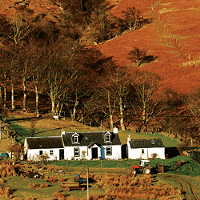Like other businesses, the Brexit referendum, threat of another independence referendum, coupled with CAP reform and a raft of new legislation, has created uncertainty for owners and managers. Such an environment has prevailed for many years, to the extent that it is perhaps considered the norm, however it has placed considerable pressure on management resource.
Demonstrating resilience and fleetness of foot, rural businesses have shown an exceptional ability to adapt to new legislation and to react quickly to economic and policy changes, while continuing to improve business performance. This is remarkable, however, we expect these enterprises to come under even more pressure over the next few years. Already we can see these businesses mitigating against risks by reducing their reliance on traditional sources of income. However, moving into diversified business carries its own risk in terms of investment, delays in building income streams and identifying the correct opportunities. In the long-term we anticipate that the most successful businesses will have a portfolio of diversified businesses.
One of the interesting observations from the results is, that during the period of Land Reform, the impact of this process has been the very reverse of what was intended. The quantum of let land has dropped markedly. Savills has advocated a free market as the best way of encouraging the letting of land. Over the coming years, we expect the market to encourage landowners to let land to balance their portfolios between in-hand/contracting and letting on modern tenancies. Ironically, rather than enhancing this trend, the Land Reform Act is constraining it.
During the reporting period, these businesses were cautious about expenditure, however, they continued to invest over half of their income back into the fabric of rural communities, particularly into let farming businesses and into the rural housing stock. In terms of corporate social responsibility, rural businesses continue to engage and work closely with local communities, sharing enterprises, opportunities and investment.
There are difficult times ahead; agricultural incomes are going to come under pressure and we may see a market correction in terms of the required scale for sustainable units. Many rural businesses are already pursuing a policy of restructure to take advantage of economies of scale and diversified income. At Savills, we look forward to working with these businesses to develop progressive sustainable enterprises.
.png)
